

Shardul Phadnis
Scholar / Professor / Speaker / Board President
About Shardul
Adaptation and Value-Creation in Supply Chains: Scholarship for Impact
Shardul Phadnis is a Professor of Operations and Supply Chain Management at the Asia School of Business (a collaboration between MIT Sloan Management and Bank Negara Malaysia) in Kuala Lumpur. His research explores the intersection of supply chains and strategic management, exploring (a) how organizations create value by orchestrating supply chain operations and (b) how strategy processes, like scenario planning, shape the adaptability of supply chain infrastructures and processes.
Shardul combines an engineer’s mindset of “making an impact” and seven years of hands-on experience improving factory-floor operations in three manufacturing companies in the US and India with a scholarly approach to uncovering and addressing root causes. His “application-motivated research” has impacted practice in industries such as chemicals, pharmaceutical distribution, convenience stores, food & beverage, as well as governments and private logistics infrastructure planning.
Speaking
Latest and Upcoming Speeches
Cambridge International Manufacturing Symposium
Cambridge, UK
Adapting Supply Chains in a Complex, Uncertain World
Sept 11, 2024
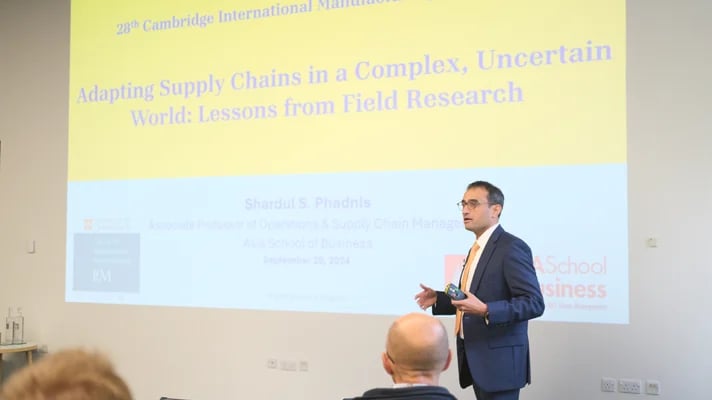

National Climate Governance Summit
Kuala Lumpur, Malaysia
Decarbonizing Supply Chains: Adaptation Challenges and Innovation Opportunities
Sept 19, 2024
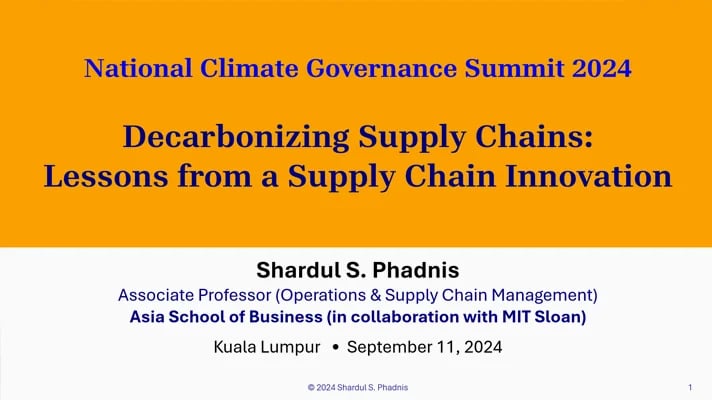

Strategic Planning for Dynamic Supply Chains
This book presents a strategic decision-making process – scenario planning – to help organizations build flexible supply chain infrastructures and adapt them to uncertain shifts in the business environment. It presents theoretically grounded processes for developing and applying scenarios and illustrates them using the authors’ three first-hand case applications. The book also provides case evidence to answer if the scenario invention worked.
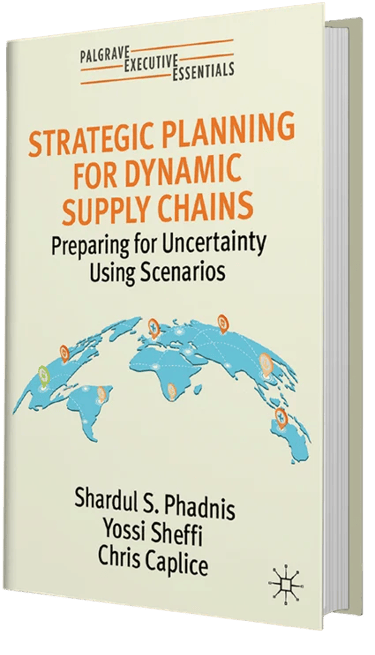

Ralf Busche
Senior Vice President European Site Logistics Operations, BASF, Ludwigshafen am Rhein, Germany
Imagining the unthinkable! This book is an essential contribution to all supply chain professionals in times of unprecedented events and turbulent markets that challenge every supply chain and demand for higher capabilities by preparing for the unknown.
Reviews
Martin Christopher
Emeritus Professor of Marketing and Logistics, Cranfield School of Management, UK and author of Logistics & Supply Chain Management
Once again, the MIT team from the Center for Transportation and Logistics have broken new ground. The use of scenario planning, whilst widely used elsewhere, has rarely been deployed in the development of supply chain strategies.
Books and Articles
Selected Publications
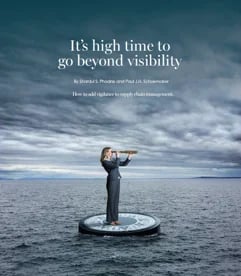

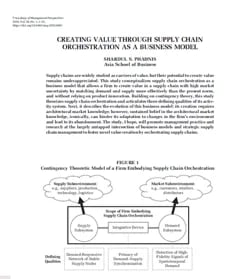

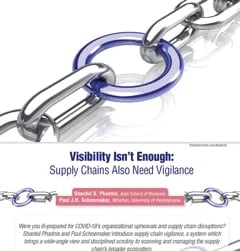

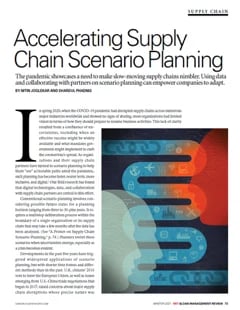

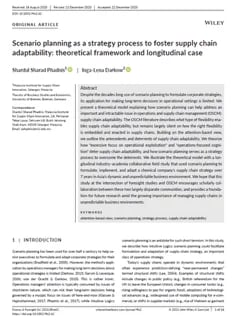

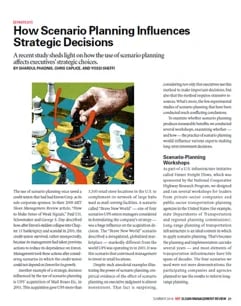

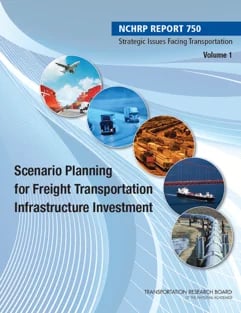

Advisory


Supply strategy for semiconductor manufacturing
Objective
Develop a strategic decision-making framework based on scenario planning to guide the company’s substrate supply strategy. The framework should identify relevant macro-level forces (e.g., geopolitical tensions, technological evolution, talent availability, etc.), assess their impact and uncertainty on the strategic decision, and consider them to guide the focal decision.


Tactical planning framework for logistics planning in the Chemicals industry
Objective
Develop scenarios and an associated scenario planning framework to guide tactical planning of the company’s global logistics operations. The scenarios should consider short-term, unpredictable uncertainties that affect day-to-day logistics operations (e.g., shipping chemicals from Asian manufacturing sites to European customers).


Strategic Supply Chain Scenario Planning Playbook
Objective
Perform a thorough analysis of the company’s long-term business environment (5-10 years) to identify key trends and uncertainties, develop scenarios, and help the company identify strategic choices for effective supply chain management. Develop a playbook to help the company decide how to adapt its supply chain based on the changes in the business environment.
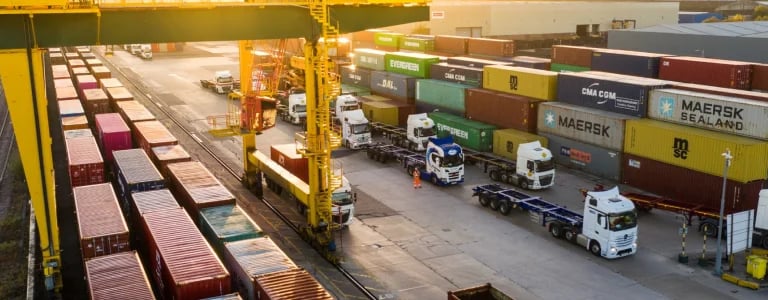

Logistics Infrastructure Planning
Objective
Develop scenarios and a process to guide long-range planning (30 years) of a region’s freight infrastructure (e.g., highways, railroads, waterways, intermodal facilities, etc.). The scenario and the framework should be flexible enough to be used by any federal, state, or regional transportation planning agency in the U.S.
Project Report
Duration
Since Fall 2022
Sponsor
A large semiconductor producer
Sponsor
A global beer producer
Duration
2012-2014
Sponsor
A large global chemicals producer
Duration
Since Fall 2024
Sponsor
U.S. Federal Highway Administration
Duration
2010-2012
Facilitation
Designing and adapting a company’s supply chain infrastructure in turbulent environments requires expert facilitation to extract relevant information spread among individual managers and channel their expertise and industry knowledge to make sense of it. Effective facilitation in this context requires skills for adroit group deliberation and decision-making, as well as supply chain subject matter expertise.
I have facilitated workshops in companies for senior leaders (chemicals, convenience stores, energy transport, food and beverage, pharmaceutical distribution, etc.) and governments (departments of transportation, ports, and the United Nations).
2022-present, Malaysia
Energy transport
Facilitation of scenario creation and application workshops in executive education sessions
2021-present, Malaysia
Eco-foodbank
Facilitation of strategy workshop as well as monthly board meetings as the President of The Lost Food Project
2019, Malaysia and US
Ocean cargo carrier
Lead facilitation of scenario workshops to explore implications of mobility trends for ocean shipping of automotive cargo
2013-14, US
Beer producer
Interviews, facilitation of scenario creation and application workshops to help the company guide adaptation of its supply chain
2012, US
Convenience store chain
CxO interviews and facilitation of scenario planning workshops to guide supply chain adaptation
2012, US
United Nations
Scenario creation workshop to strategize for supply chain design for peacekeeping operations
